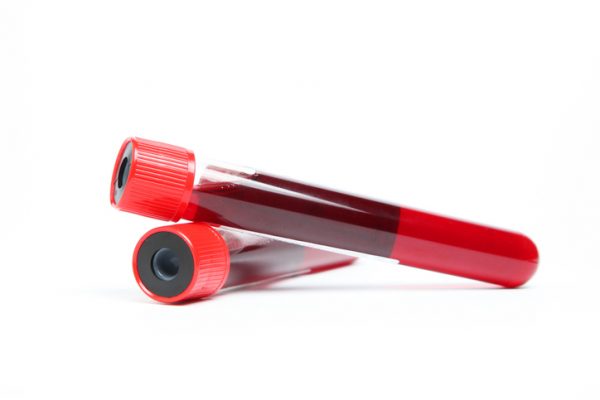
Investors have poured boatloads of cash into liquid biopsy companies promising that their technology is the solution for non-invasive screening of early-stage cancer.
In the latest mega funding round, South San Francisco company Freenome has raised a $160 million in a Series B led by RA Capital Management and Polaris Partners to launch its pivotal trial for its blood-based test to screen for colorectal cancer. Polaris Partners and RA Capital will join Freenome’s board as part of the deal.
Other new investors in the round include Roche Venture Fund, Kaiser Permanente Ventures and the social impact investing arm of the American Cancer Society. The company has raised a total of $238 million since its founding in 2014.
Alongside the company’s clinical validation efforts, Freenome expects to submit its test for parallel review for CMS coverage. The new capital will be directed at building the infrastructure and staffing necessary to perform the clinical trial.
Freenome’s technology analyzes patient sample taken through regular blood draw to determine the potential risk for colorectal cancer.
Through what the company dubs a “multiomics” approach, the diagnostic uses machine learning and computation to test a combination of potential biomarkers for cancer like genetic material shed from cancer cells, relevant proteins and methylation, which is a process by which DNA modifies the function of specific genes.
“We’ve never believed there is a single solution to cancer screenings,” said Freenome CEO Gabriel Otte. “Our intention always to test for multiple analytes in the blood and use those combination of signals to effect cancer treatments.”
This information gleaned from Freenome’s test can be used to help inform provider decisions to confirm the diagnosis and start treatment earlier, leading to better recovery and survival rates.
According to the American Cancer Society, when colorectal cancer is detected in an early stage, 5-year survival rates hover around 90 percent. The condition is the second deadliest form of cancer, with around 50,000 Americans predicted to die of the condition this year.
Freenome’s strategy takes a page from Exact Sciences, which received FDA approval – along with a positive CMS coverage indication – for its Cologuard stool-based colorectal cancer diagnostic in 2014.
“Frankly it’s not really about what works technologically, and not even what you can get validated by the FDA, but rather what you can get paid for,” Otte said.
Mirroring its predecessor’s approach to regulatory and reimbursement approval, Freenome is also looking to launch a similar trial to the one conducted by Exact Sciences.
Otte said Freenome plans to have pre-submission meetings with the FDA later this year and launch the clinical trial in the first half of 2020. The hope is to be able to enroll roughly 10,000 participants into the trial, with the research taking place over a period of around 24 months.
Competitors like Grail, Guardant Health and Thrive are all pursuing their own liquid biopsy technology, albeit with a focus on screening for multiple types of cancer.
Menlo Park-based Grail presented early results at this year’s American Society of Clinical Oncology meeting that showed its diagnostic’s ability to detect cancer signals with a false positive rate of less than 1 percent and find the tissue of origin with relatively high accuracy.
Otte, however, drew a distinction in the business rationale between Grail’s approach and that of Freenome.
He said that Freenome’s early screening for colorectal cancer has defined clinical utility, with a standard way to confirm to diagnosis through a colonoscopy. Multi-cancer screenings – while great tools technologically – leave too much open to interpretation and are harder to integrate into the existing healthcare system, Otte argued.
“One of the most important questions to ask is what is the clinical follow-up?Clinicians are going never to use the test that leaves too many open-ended questions on what they’re going to do next and payers won’t reimburse for that either,” Otte said.
In fact, Freenome’s company’s own product development pipeline was shaped by a similar realization. Initially, the company’s research honed in on prostate cancer, but it was faced with the issue of early diagnosis failing to change treatment patterns, rendering the test non-commercially viable.
Still, even with the difference in opinion to some of the other liquid biopsy companies, Otte pointed to the growing interest in the field from investors and clinicians as positive indications for the industry.
“Diagnostics have traditionally been the ugly-step sibling in the therapeutics world, but there’s a growing recognition that next-generation diagnostics are here to stay and are a key part of solving cancer,” Otte said
Photo: harmpeti, Getty Images















